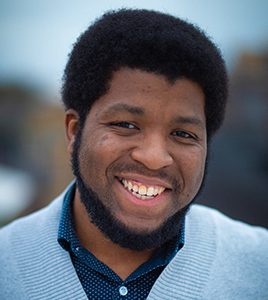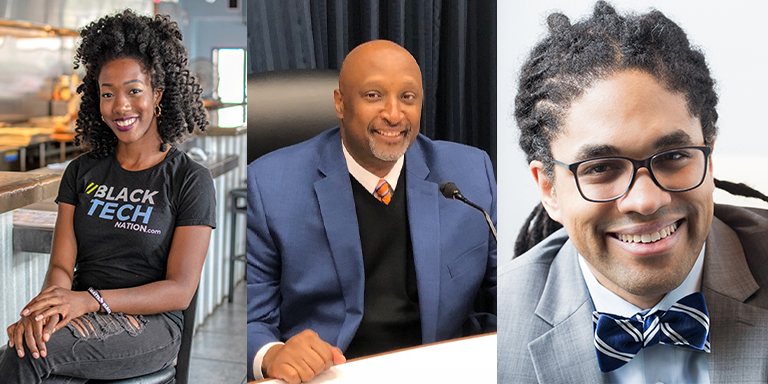
Pennsylvania’s Black Tech Entrepreneurs Forge A Path
Black leaders and entrepreneurs in technology aren’t new to the scene. Think of inventors like Dr. Mark Dean, who contributed numerous key patents for the development of the personal PC during his time with IBM, or Annie J. Easley, who developed software for NASA’s Centaur rocket stage. Both Dean and Easley had to navigate more than just science and technology. They also wrestled with racial injustice throughout their careers. Black tech professionals made a significant impact then, and continue to do so today.
Some of those leaders live right here in Pennsylvania, making waves that ripple far beyond the Keystone State. These entrepreneurs are transforming medicine, data literacy, education, and system efficiency, and are leading the way as we enter the third decade of the 21st century.
Nyron Burke, Lithero
As CEO and co-founder of Lithero, Nyron Burke is solving a health care problem that impacts not just physicians and drug distributors, but patients: The company ensures the accuracy of drug ads.
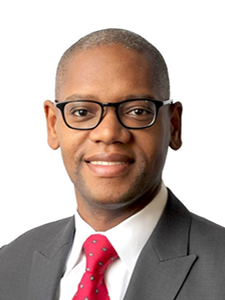
“Part of the issue with drug ads and drug promotions being wrong is that it can really hurt people,” says Burke. “A drug company can intentionally or unintentionally say something wrong about their product, the physician may not know the risk, or they may not know who it’s for.”
Surveying each and every drug is fundamentally a manual process, and Burke’s company is paving the way for efficient tech that supports the process, saves money, and eliminates human error. Alongside co-founder Brandon Morton, they’ve developed LARA, a platform that can learn about a drug, review it, and identify problem areas.
Burke’s upbringing is what helped drive him to become an entrepreneur. Born in Jamaica, his family was poor. His father was an entrepreneur, and both of them dreamt of becoming entrepreneurs in America.
“I grew up with the stories and the dreams of independence and having your own thing,” he explains.
Burke believes tech is a world of opportunity, noting that technical skills are a means to push back against racism and bias. Many resources for learning coding and programming are accessible, offered up at a low cost or for free.
“It’s a very democratic thing,” he says. “You don’t have to have a lot of fancy certifications.”
You just need to learn how to write good code.
Jim Gibbs, Meter Feeder
A former New Yorker, Jim Gibbs came to Pittsburgh to study at Carnegie Mellon University, where he met his co-founder Dan Lopretto. They’ve been writing software together since the early ‘80s. In a modest — but warranted — boast, Gibbs says that “whether you know it or not, you’ve probably touched my code.”
Now he’s the CEO of MeterFeeder.
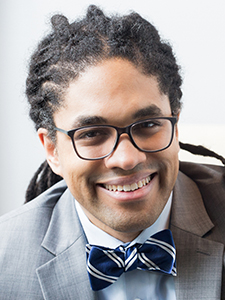
“We made a way for traditional and autonomous vehicles to pay for parking without there being other people,” explains Gibbs. “We specialize in digital enforcement, and we can do that using our low-cost devices. It enables people to pay for parking by [simply] turning their car off.”
Payment can be processed in their app (including paying for parking tickets), eliminating the need to return to meters or go out of their way to manage fees and fines for tickets. For enforcement fleets like PPA, they’ve developed an enforcement kit that works completely on-the-go with a tablet and printer, and apps that are designed to work with a company’s infrastructure.
Meter Feeder also helps predict parking availability, which is especially useful for fleets like USPS.
Gibbs’ journey through the industry has come with some adversity, mostly because of people telling him “no.” In 1997, Gibbs developed a mobile app that enabled people to find out what best to eat according to diets prescribed by their doctors. Venture capitalists insisted that no one was ever going to use the Internet on their phone.
“Just because people have money doesn’t mean they know what the future holds,” he says.
Cass Wright, My Readiness Coach
Cass Wright’s My Readiness Coach is an on-demand college preparation program.
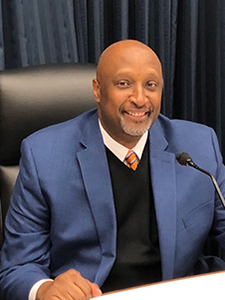
“School teachers and counselors aren’t prepared to help kids with post-secondary education,” explains Wright. The founder “didn’t do well in high school because I didn’t have the foundation at home” to give him the best chance at success in class and beyond.
What was he going to do after graduation? What were his options? He didn’t have a roadmap, so he built one. My Readiness Coach is an intuitive platform that guides parents and students through the financial aid application process, offers weekly webinars, provides more than 800 modules for students to work (they change depending on the career path they choose), and connects students with advisors they can speak with directly. All this and more is available with plans ranging from $30 to $40 a month.
“The platform itself caters to any students’ learning abilities,” says Wright.
This is especially vital with the impact COVID-19 will have on education and technology. My Readiness Coach considers access and comprehension via an abundance of tools that fit a variety of needs and goals.
The platform provides the information students need to optimize their education and to prepare to enter college or the workforce. Often this information isn’t readily available to underprivileged students living in marginalized communities. My Readiness Coach has secured more than $55 million in scholarships and financial aid for the students that have utilized the program, helping students find and apply for the funds they need through the program’s modules.
Kelauni Cook, Black Tech Nation
Black Tech Nation (BTN) is a digital organization with a powerful mission: Their goal is to gather what CEO and founder Kelauni Cook calls “Black tech unicorns,” connecting them and spurring change in the Black community.
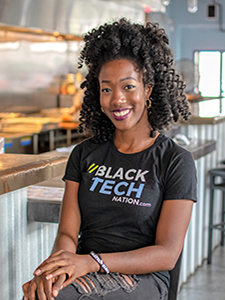
“The first two years of me doing this was me trying to find the needles in a haystack,” says Cook, “but soon it became a national thing.”
What started as an organization to help Black tech folks in Pittsburgh network now has over 600 members and has partnered with companies large and small throughout the United States.
The Chicago native’s relationship with coding is an unusual one. Cook studied pre-med and sociocultural anthropology in college before learning to code at Academy Pittsburgh Engineering Boot Camp. After getting into the industry, she noticed that she typically the only Black person in the office. Moreover, she was the only Black woman in the office.
“I’m creating what I wish I had at the time,” she explains. “When you’re at work, you might be the only one, but with BTN, we see you.”
Now in its third year, BTN has become a safe space for Black professionals in the tech industry, gathering employees, engineers, industry leaders, developers, startup founders, VCs, and more. They partner with tech companies and diversity groups to create socially conscious, inclusive work cultures, teach thousands of Black students how to code, and work with local government to draft legislation that advocates for diverse hiring and community engagement.
Cook is building what she calls a “digital Wakanda,” affirming that at BTN “we talk, we split, and we decide how we want to affect our communities.”
Bruce Marable, Employee Cycle
Employee Cycle is a ‘people dashboard’ that helps small- and medium-sized companies turn their employee data into actionable workforce insights. Combining all HR systems — HRIS, ATS, Engagement, and Glassdoor — Employee Cycle integrates real-time data with those pre-built API to create charts and information on a customizable dashboard, simplifying tracking and company analytics.
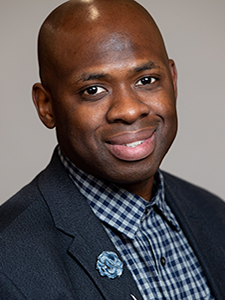
“Companies have always wanted to be smarter about their workforce but didn’t have the actions and the people to do it,” says Marable.
Having experience in human resources software, he wanted to create a platform that was more data driven and cost-efficient, helping HR workers have more information at their disposal. These administrators often have their hands full. From managing, aggregating, and visualizing data, executing on that information, navigating finance tools, employee relations, benefit packages, and more, the work is never done. Employee Cycle uses technology to streamline HR’s processes of tracking of employee data, with an emphasis on promoting and strengthening data literacy.
“Human Resources [employees] didn’t come up with data driven backgrounds,” adds Marable. “A lot of people look at the HR role as a necessary evil…HR leaders are the most important people in the company. We see how the workforce has been broken [since COVID-19], whether that’s because of systemic issues or as a result of us just being people, but you need trend analysis.”
Growing up in Southwest Philadelphia, Marable had a strong foundation at home but saw that the community around him lacked resources and tools. Using that as motivation, Marable has been developing systems to help people complete tasks, coordinate with other departments, and forge solidarity.
***
While much of the tech industry congregates in New York and California, Pennsylvania is proving to be key in the development of Black entrepreneurship, innovation, and community. With the likes of Marable, Cook, Wright, Gibbs, and Burke setting a strong example, the vitality of the local technology sector continues to grow.
This story was created in partnership with Keystone Edge.

